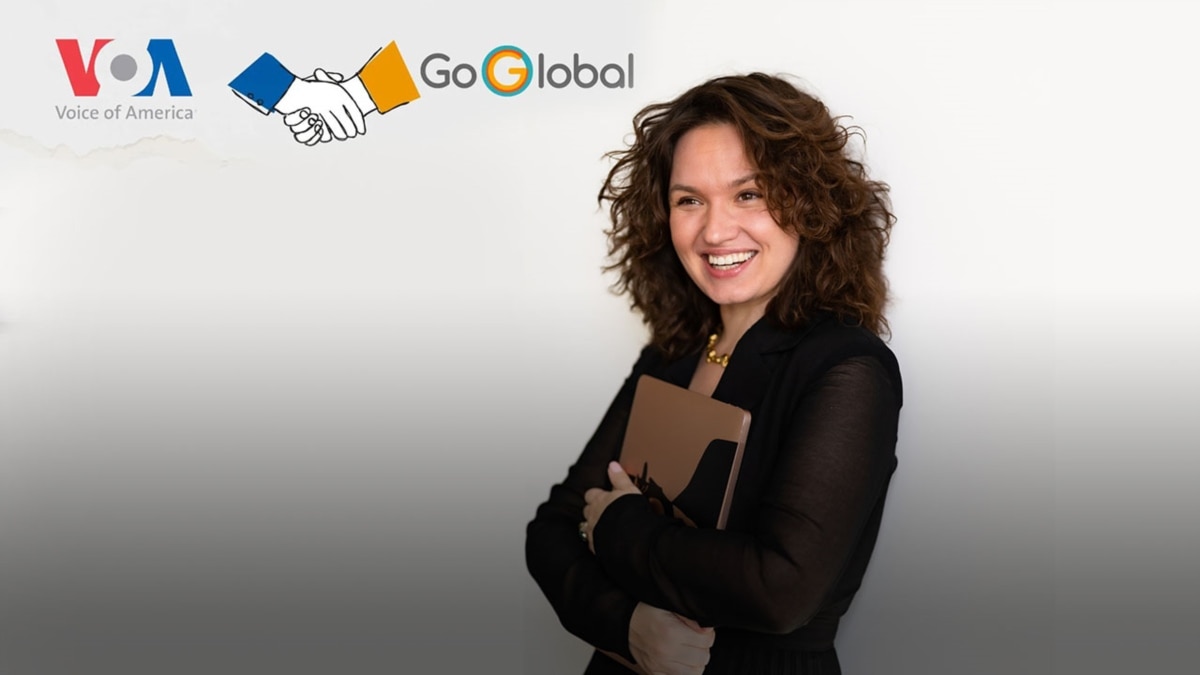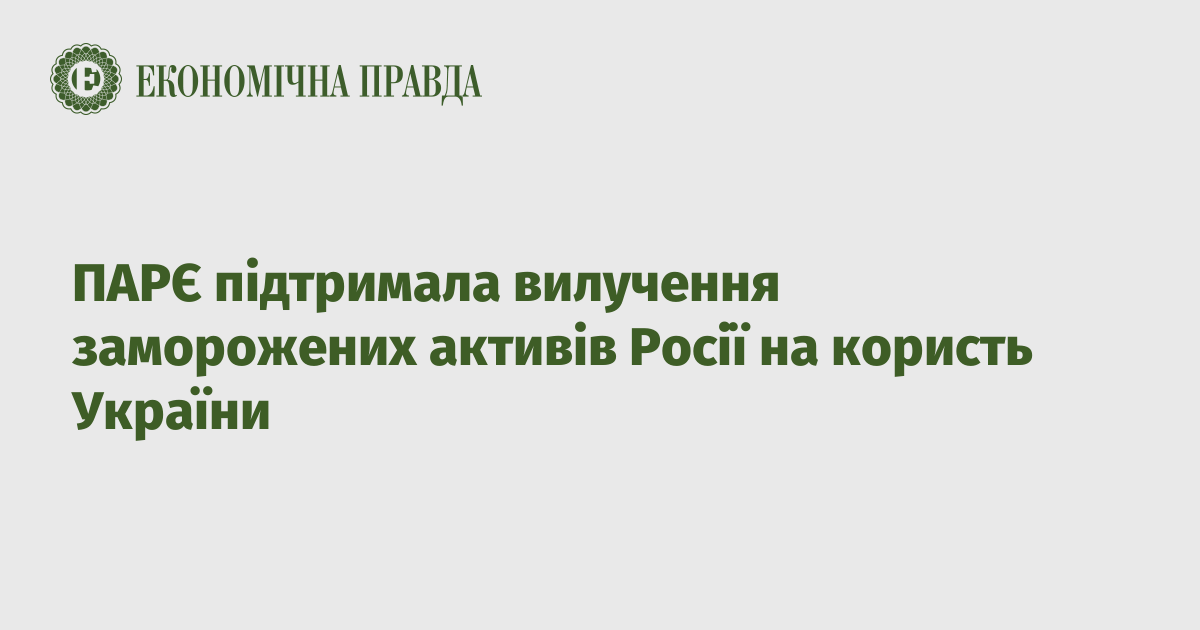“Voice of America” and GoGlobal help Ukrainian teachers overcome emotional burnout, motivate students, during the war

More than half of Ukrainian teachers complain of emotional burnout, and more than 70% of students show signs of cognitive stress: fatigue, irritability, and the inability to concentrate. Such research results were published by the GoGlobal educational foundation. Currently, the foundation conducts psychological training for teachers, and develops a number of projects to reduce the impact of war on the mental health of educators and students. GoGlobal also cooperates with the Voice of America to help Ukrainian teachers and children learn English better. Details about the foundation’s initiatives can be found in Ilona Voytovych’s interview with Oksana Nechyporenko, the head of GoGlobal’s board.
Ilona Voytovych. Ms. Oksana, congratulations, thank you for agreeing to talk today about education during the war in Ukraine. Recently, your educational foundation, Goglobal, released the results of a new study on the long-term effects of war and the impact on educators. The results of the survey of teachers and schoolchildren showed how difficult it is for them now. Tell us about which problems you have heard and which of them are not talked about much?
The teachers – from the quarantine, which was the most difficult for them, where they all practiced learning online – moved to bomb shelters and basements
Oksana Nechyporenko. The research is actually pretty sad. Because 75% of children show signs of cognitive stress, more than 50% of teachers say they are in a state of mental and professional burnout. But if you ask them about the condition of their colleagues, then this figure will change by 86%. It’s very important to note, and I think our audience understands, that the teachers – from the quarantine that was the most difficult for them, where they all practiced learning online – went to bomb shelters and basements. And then they left there in order to continue to teach children and inspire children under sirens, under bombs, without light and understanding that their relatives and loved ones in the Armed Forces are protecting Ukraine at this moment.
Children show signs of stress – it’s tiredness, it’s irritability. This is the inability to focus on education. But on the other hand, the children became patriots, fans of the Armed Forces of Ukraine and volunteers.
I.V.: As you mentioned, teachers should be a support for children. Is it necessary to create programs for the psychological support of teachers themselves, especially given the fact that the stigma around mental health needs to be eradicated
O.N.: Teachers indicate this as the greatest need: that they can receive methods for working with children in psychological health and medical practices. You are absolutely right that for Ukrainians, unfortunately, this is still a stigma. We are not used to going to psychologists. For us, a psychologist equals the word psycho. Accordingly, this is one of the biggest problems from the biggest challenges that Ukraine is already facing.
We have to build a new education system in which psychological security will be the basis
I know that a large information campaign is being prepared at the state level in order to talk about the mental health of Ukrainians, and in parallel with this, methodological work practices need to be developed in each field. Accordingly, not only that, we have to build a new education system in which psychological security will become the basis.
This is because now there are actually no safe environments left in Ukraine. They are only relatively protected. And we need to be able to work with it, and we understand that working with trauma, with psychological trauma – it will not end immediately after our victory.
I. V.: Are you working on this with (the first lady of Ukraine – ed.) Olena Zelenskaya?
O.N.: We cooperate with the foundation. We are waiting for the company they are developing and will support it as much as possible. And we will also join the projects that they have. They actually create such a large umbrella brand campaign. They promote these topics. And we each work in places where we can work. We have already started to do this through our trainings on psychological methodological assistance. Several thousand teachers have already passed them. That is why we are working, launching pilot projects to work with school psychologists, and we are actually piloting those methods that we will then be able to scale in Ukraine. And already, in fact, those teachers who went through our training were able to influence more than a hundred thousand children there.
They first need to help themselves, although they won’t admit it, but all these methods are ones they can use themselves. As you know in airplanes – first put a mask on yourself, then on the child
I.V.: You travel around the world, you communicate with many leaders in the field of education. Which country could you learn from?
The most relevant for us is the experience of Israel
O.N.: In Israel. Israel is a country that is in a state of constant war and constant stress. Also very powerful programs in America. We are talking about trauma based learning. America, thank God, is not at war, but there are teachers or children who have experienced school mass shootings. it can also be trauma. In fact, America also has this experience. But the most relevant for us is the experience of Israel. A war of such intensity did not take place on the European continent more than 80 years ago, and it is worth noting that over time Ukraine will become the source of those methodologies and technologies and methods of models and tools and ecosystems for the reconstruction of mental health to build such models of psychological security in the world.
I.V.: The GoGlobal foundation itself, which has been operating in Ukraine for more than 7 years (and we have talked about it more than once in Chas-Time), focused on English language learning projects for children, such as the GoCamp program. You recently announced a new project for teachers in partnership with Voice of America. Tell us how this idea was born?
O.N.: When we started the Year of the English Language, 2016, we looked at all the tools available to Ukrainians to learn the language. And Voice of America is very clear, there is a whole set of clear tools for teachers and for children and in general for a wide audience, for learning the English language, and we were establishing this cooperation, we made it available to Ukrainians in various formats. And now it seemed to us, now after the beginning war to begin working with teachers when the VOA specialists who developed these materials taught for teachers. It has everything from a full year curriculum to additional interactive tools that teachers can start using right away.
We remind you that teachers are tired and demotivated. It is difficult for them. We need to help them, inspire them, give them additional tools to continue working online. That is why such programs and the provision of such absolutely practical tools of yours with bright teachers and methodologists. It just went to Hurrah. Therefore, I think we will ask for the continuation of the project.











